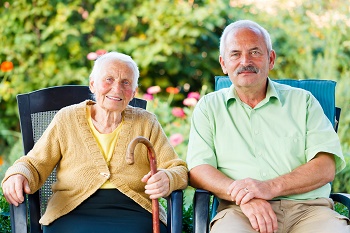 Caring for aging parents is challenging enough, but did you know that one of the most overlooked aspects of senior health is eye care? Too much exposure to sunlight doesn’t just increase your odds of sunburns and skin cancer (even indoors), it can also be extremely harmful to your eyes, especially in old age. From cataracts to photokeratitis, macular degeneration, pterygia, and optic syndromes associated with Glaucoma, the damage can be permanent and even lead to vision loss.
Caring for aging parents is challenging enough, but did you know that one of the most overlooked aspects of senior health is eye care? Too much exposure to sunlight doesn’t just increase your odds of sunburns and skin cancer (even indoors), it can also be extremely harmful to your eyes, especially in old age. From cataracts to photokeratitis, macular degeneration, pterygia, and optic syndromes associated with Glaucoma, the damage can be permanent and even lead to vision loss.
Ultra Violet Rays and Optical Health
UVB rays are one of the leading causes of vision problems (as well as skin cancer and premature aging). UVC rays are also extremely harmful to the eyes, and while UVA rays are less harmful to the skin, they have the unique ability to move through the eye’s cornea and get into the retina and lens.
Too much UVA exposure can lead to cataracts and other vision problems. However, recent research has revealed that UVB rays may also be the cause of less common vision issues such as pterygia, a growth on the surface of the eye which can distort your vision. UVB rays can also lead to photokeratitis, which is cornea inflammation or “snow blindness.” Some people report being blind for up to 48 hours—and as an elderly person, this can lead to more falls, trips and broken bones.
The cornea can to absorb 100 percent of UVB rays. Fortunately, this type of UV radiation is unlikely to cause conditions like cataracts, glaucoma, or macular degeneration, and because it cannot penetrate window glass, you are safe from UVB rays when indoors. These common conditions are linked to UVA rays, which can travel through window glass.
Many things can make an elder more sensitive to light and UV rays including where they’re located (the closer to the equator, the more UV exposure), altitude, medications taken, existing health conditions, and the time of day.
Indoor Protection
Sunglasses can block up to 100 percent of UV and HEV (high energy visible light) rays, and doctors may suggest that elderly adults wear them at all times when outdoors. But, asking your parents to wear sunglasses when indoors may be regrettable as it could also disrupt their vision and make it harder to move around.
If you want to protect your parents’ vision, consider installing window film instead. With various tinting options, these products can block 99% of harmful UVA rays and protect their eyes from developing these conditions. They can also reduce glare in the home while preserving natural light and helping to lower energy bills.
As an added bonus, specialized window tinting treatments can make breaking windows nearly impossible, decreasing the odds of becoming a burglar’s victim or getting hurt during an earthquake or wind storm.
While older adults and children benefit most from eye protection indoors, it’s helpful to the entire family. Even if you’re vigilant about wearing sunglasses and SPF outside, without taking care of in-home protection your efforts may be in vain.
Contact us today about using window film to protect the health of your aging family members. Call 503-736-9000 or use our contact form to send us an email.